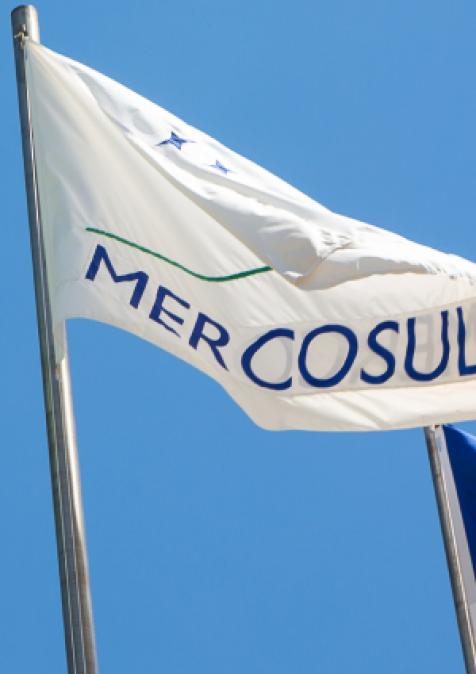Publications /
Opinion
Leonardo Parraga is an alumnus of the Atlantic Dialogues Emerging Leaders Program 2016.
The rise of globalization has given space to cooperation across borders in unprecedented ways. The interconnectedness between different actors allows for the creation of synergies and catalyzing progress in different areas, a feature that was previously unthinkable. When it comes to cooperation amongst young people, the increasing wave of meeting spaces facilitating the encounters between youth from Africa, Latin America, and Asia has created new bridges and channels for cooperation.
Valuing youth expertise worldwide
One such example is the 1st International Symposium of the Role of Young People in Peace Processes. A forum gathering 100 individuals, coming from the youth sector, policy level, multilateral organizations, and grassroots initiatives. The event permitted young people to have more exposure to other peers from across the world doing relevant work in areas of building peace, a connection that otherwise might have never happened. Yet, the results go beyond just a meeting. To be precise, as in any relationship of cooperation, getting to know one another is the first step. Recognizing the expertise of other peers and how their knowledge and experience can be translated to a context 10,000 miles away, is something that can get new processes started. For instance, the process of getting started with the implementation of a National Action Plan for Youth, Peace, and Security (YPS) Resolutions (2250 & 2419) from the UN. The country that has advanced the most in this area is Finland, which is on the verge of implementing this program and has advocated the last years for the government to adopt it. Precisely, this international space was a meeting place for the Minister of Foreign Affairs from Colombia and two Colombian youth representatives, Laura Henao and Leonardo Párraga, who managed to obtain a commitment from the minister to adopt a YPS action plan in Colombia. The Symposium was as well a chance to develop ongoing cooperation between youth from Finland and Colombia to create a robust and meaningful YPS action plan. While it seems in principle traditional North-South cooperation, in fact, this meeting space allowed for South-South cooperation to emerge.
At the Symposium, Irena Grizelj –with a vast work in youth peacebuilding in Myanmar– and Leonardo Párraga had a chance to meet and discovered how their work in the area of peace and youth had many overlaps. While this message was well-known for circles “in the know”, the larger community was not very conscious about the relevance of involving the youth to build sustainable peace. To change that, together they organized a session during the European Development Days 2019 titled “The Role of Young People in Peace Processes”, and were joined by two other peacebuilders, Yasmine Ouirhrane, working in peace and security in Europe and Africa, and RJ Barrete, engaged in the peace process in the Philippines. While representing different areas of the world, they were able to provide a clear voice in terms of a way to move forward, young people need to be perceived as partners in peacebuilding, rather than just confined to the roles of beneficiaries, victims or war perpetrators.
Opportunities for embracing common projects
Another second avenue of South-South cooperation is The Young Peacebuilders Forum 2019, taking place in Bogota, Colombia from the 15th until the 18th of July. Organized for the first time out of its traditional location in The Hague, the Netherlands, to bring it to South America was an effort achieved by the common work of three local organizations, with the support of the United Network of Young Peacebuilders operating at a global level. Through an alliance between Fundación BogotArt, Fundación Escuelas de Paz and Peacemaker 360, 60 young people from all over the world, mainly the Americas and the global south, are able to gather in this meeting. This was a space helping the participants to strengthen their capacities as activists, help them to build new networks of support and cooperation and jointly keep providing recommendations to move forward the YPS agenda.
The fact that the three organizations started to cooperate together also opened up the possibilities for embracing together new projects, such as the development of the National Action Plan on Youth, Peace, and Security for Colombia, being the forum an initial and ideal space to start to gather input and build its foundation.
While small examples, what they illustrate is clear, creating spaces to meet other like-minded young people is fundamental to enhance the impact and reach of peace projects and be able to scale up ideas surpassing the frontiers.








